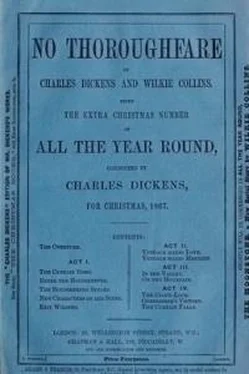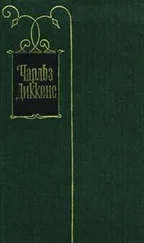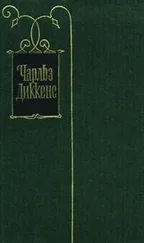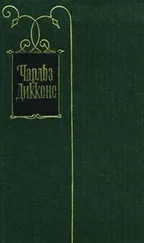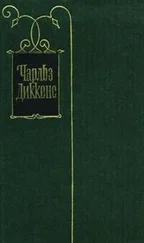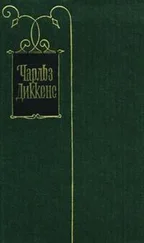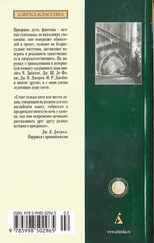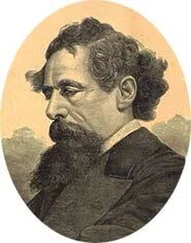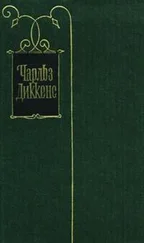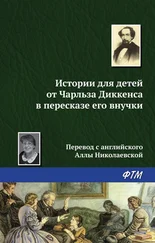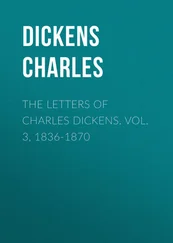Чарльз Диккенс - No Thoroughfare
Здесь есть возможность читать онлайн «Чарльз Диккенс - No Thoroughfare» весь текст электронной книги совершенно бесплатно (целиком полную версию без сокращений). В некоторых случаях можно слушать аудио, скачать через торрент в формате fb2 и присутствует краткое содержание. Год выпуска: 2014, Издательство: epubBooks Classics, Жанр: Классическая проза, на английском языке. Описание произведения, (предисловие) а так же отзывы посетителей доступны на портале библиотеки ЛибКат.
- Название:No Thoroughfare
- Автор:
- Издательство:epubBooks Classics
- Жанр:
- Год:2014
- ISBN:нет данных
- Рейтинг книги:5 / 5. Голосов: 1
-
Избранное:Добавить в избранное
- Отзывы:
-
Ваша оценка:
- 100
- 1
- 2
- 3
- 4
- 5
No Thoroughfare: краткое содержание, описание и аннотация
Предлагаем к чтению аннотацию, описание, краткое содержание или предисловие (зависит от того, что написал сам автор книги «No Thoroughfare»). Если вы не нашли необходимую информацию о книге — напишите в комментариях, мы постараемся отыскать её.
No Thoroughfare — читать онлайн бесплатно полную книгу (весь текст) целиком
Ниже представлен текст книги, разбитый по страницам. Система сохранения места последней прочитанной страницы, позволяет с удобством читать онлайн бесплатно книгу «No Thoroughfare», без необходимости каждый раз заново искать на чём Вы остановились. Поставьте закладку, и сможете в любой момент перейти на страницу, на которой закончили чтение.
Интервал:
Закладка:
"Those are all your instructions, are they, Mr. Wilding?" demanded Bintrey, after a blank silence, during which nobody had looked at anybody.
"The whole."
"And as to those instructions, you have absolutely made up your mind, Mr. Wilding?"
"Absolutely, decidedly, finally."
"It only remains," said the lawyer, with one shrug of his shoulders, "to get them into technical and binding form, and to execute and attest. Now, does that press? Is there any hurry about it? You are not going to die yet, sir."
"Mr. Bintrey," answered Wilding, gravely, "when I am going to die is within other knowledge than yours or mine. I shall be glad to have this matter off my mind, if you please."
"We are lawyer and client again," rejoined Bintrey, who, for the nonce, had become almost sympathetic. "If this day week—here, at the same hour—will suit Mr. Vendale and yourself, I will enter in my Diary that I attend you accordingly."
The appointment was made, and in due sequence, kept. The will was formally signed, sealed, delivered, and witnessed, and was carried off by Mr. Bintrey for safe storage among the papers of his clients, ranged in their respective iron boxes, with their respective owners' names outside, on iron tiers in his consulting–room, as if that legal sanctuary were a condensed Family Vault of Clients.
With more heart than he had lately had for former subjects of interest, Wilding then set about completing his patriarchal establishment, being much assisted not only by Mrs. Goldstraw but by Vendale too: who, perhaps, had in his mind the giving of an Obenreizer dinner as soon as possible. Anyhow, the establishment being reported in sound working order, the Obenreizers, Guardian and Ward, were asked to dinner, and Madame Dor was included in the invitation. If Vendale had been over head and ears in love before—a phrase not to be taken as implying the faintest doubt about it—this dinner plunged him down in love ten thousand fathoms deep. Yet, for the life of him, he could not get one word alone with charming Marguerite. So surely as a blessed moment seemed to come, Obenreizer, in his filmy state, would stand at Vendale's elbow, or the broad back of Madame Dor would appear before his eyes. That speechless matron was never seen in a front view, from the moment of her arrival to that of her departure—except at dinner. And from the instant of her retirement to the drawing–room, after a hearty participation in that meal, she turned her face to the wall again.
Yet, through four or five delightful though distracting hours, Marguerite was to be seen, Marguerite was to be heard, Marguerite was to be occasionally touched. When they made the round of the old dark cellars, Vendale led her by the hand; when she sang to him in the lighted room at night, Vendale, standing by her, held her relinquished gloves, and would have bartered against them every drop of the forty–five year old, though it had been forty–five times forty–five years old, and its nett price forty–five times forty–five pounds per dozen. And still, when she was gone, and a great gap of an extinguisher was clapped on Cripple Corner, he tormented himself by wondering, Did she think that he admired her! Did she think that he adored her! Did she suspect that she had won him, heart and soul! Did she care to think at all about it! And so, Did she and Didn't she, up and down the gamut, and above the line and below the line, dear, dear! Poor restless heart of humanity! To think that the men who were mummies thousands of years ago, did the same, and ever found the secret how to be quiet after it!
"What do you think, George," Wilding asked him next day, "of Mr. Obenreizer? (I won't ask you what you think of Miss Obenreizer.)"
"I don't know," said Vendale, "and I never did know, what to think of him."
"He is well informed and clever," said Wilding.
"Certainly clever."
"A good musician." (He had played very well, and sung very well, overnight.)
"Unquestionably a good musician."
"And talks well."
"Yes," said George Vendale, ruminating, "and talks well. Do you know, Wilding, it oddly occurs to me, as I think about him, that he doesn't keep silence well!"
"How do you mean? He is not obtrusively talkative."
"No, and I don't mean that. But when he is silent, you can hardly help vaguely, though perhaps most unjustly, mistrusting him. Take people whom you know and like. Take any one you know and like."
"Soon done, my good fellow," said Wilding. "I take you."
"I didn't bargain for that, or foresee it," returned Vendale, laughing. "However, take me. Reflect for a moment. Is your approving knowledge of my interesting face mainly founded (however various the momentary expressions it may include) on my face when I am silent?"
"I think it is," said Wilding.
"I think so too. Now, you see, when Obenreizer speaks—in other words, when he is allowed to explain himself away—he comes out right enough; but when he has not the opportunity of explaining himself away, he comes out rather wrong. Therefore it is, that I say he does not keep silence well. And passing hastily in review such faces as I know, and don't trust, I am inclined to think, now I give my mind to it, that none of them keep silence well."
This proposition in Physiognomy being new to Wilding, he was at first slow to admit it, until asking himself the question whether Mrs. Goldstraw kept silence well, and remembering that her face in repose decidedly invited trustfulness, he was as glad as men usually are to believe what they desire to believe.
But, as he was very slow to regain his spirits or his health, his partner, as another means of setting him up—and perhaps also with contingent Obenreizer views—reminded him of those musical schemes of his in connection with his family, and how a singing–class was to be formed in the house, and a Choir in a neighbouring church. The class was established speedily, and, two or three of the people having already some musical knowledge, and singing tolerably, the Choir soon followed. The latter was led, and chiefly taught, by Wilding himself: who had hopes of converting his dependents into so many Foundlings, in respect of their capacity to sing sacred choruses.
Now, the Obenreizers being skilled musicians, it was easily brought to pass that they should be asked to join these musical unions. Guardian and Ward consenting, or Guardian consenting for both, it was necessarily brought to pass that Vendale's life became a life of absolute thraldom and enchantment. For, in the mouldy Christopher–Wren church on Sundays, with its dearly beloved brethren assembled and met together, five–and– twenty strong, was not that Her voice that shot like light into the darkest places, thrilling the walls and pillars as though they were pieces of his heart! What time, too, Madame Dor in a corner of the high pew, turning her back upon everybody and everything, could not fail to be Ritualistically right at some moment of the service; like the man whom the doctors recommended to get drunk once a month, and who, that he might not overlook it, got drunk every day.
But, even those seraphic Sundays were surpassed by the Wednesday concerts established for the patriarchal family. At those concerts she would sit down to the piano and sing them, in her own tongue, songs of her own land, songs calling from the mountain–tops to Vendale, "Rise above the grovelling level country; come far away from the crowd; pursue me as I mount higher; higher, higher, melting into the azure distance; rise to my supremest height of all, and love me here!" Then would the pretty bodice, the clocked stocking, and the silver–buckled shoe be, like the broad forehead and the bright eyes, fraught with the spring of a very chamois, until the strain was over.
Not even over Vendale himself did these songs of hers cast a more potent spell than over Joey Ladle in his different way. Steadily refusing to muddle the harmony by taking any share in it, and evincing the supremest contempt for scales and such–like rudiments of music—which, indeed, seldom captivate mere listeners—Joey did at first give up the whole business for a bad job, and the whole of the performers for a set of howling Dervishes. But, descrying traces of unmuddled harmony in a part– song one day, he gave his two under cellarmen faint hopes of getting on towards something in course of time. An anthem of Handel's led to further encouragement from him: though he objected that that great musician must have been down in some of them foreign cellars pretty much, for to go and say the same thing so many times over; which, took it in how you might, he considered a certain sign of your having took it in somehow. On a third occasion, the public appearance of Mr. Jarvis with a flute, and of an odd man with a violin, and the performance of a duet by the two, did so astonish him that, solely of his own impulse and motion, he became inspired with the words, "Ann Koar!" repeatedly pronouncing them as if calling in a familiar manner for some lady who had distinguished herself in the orchestra. But this was his final testimony to the merits of his mates, for, the instrumental duet being performed at the first Wednesday concert, and being presently followed by the voice of Marguerite Obenreizer, he sat with his mouth wide open, entranced, until she had finished; when, rising in his place with much solemnity, and prefacing what he was about to say with a bow that specially included Mr. Wilding in it, he delivered himself of the gratifying sentiment: "Arter that, ye may all on ye get to bed!" And ever afterwards declined to render homage in any other words to the musical powers of the family.
Читать дальшеИнтервал:
Закладка:
Похожие книги на «No Thoroughfare»
Представляем Вашему вниманию похожие книги на «No Thoroughfare» списком для выбора. Мы отобрали схожую по названию и смыслу литературу в надежде предоставить читателям больше вариантов отыскать новые, интересные, ещё непрочитанные произведения.
Обсуждение, отзывы о книге «No Thoroughfare» и просто собственные мнения читателей. Оставьте ваши комментарии, напишите, что Вы думаете о произведении, его смысле или главных героях. Укажите что конкретно понравилось, а что нет, и почему Вы так считаете.
